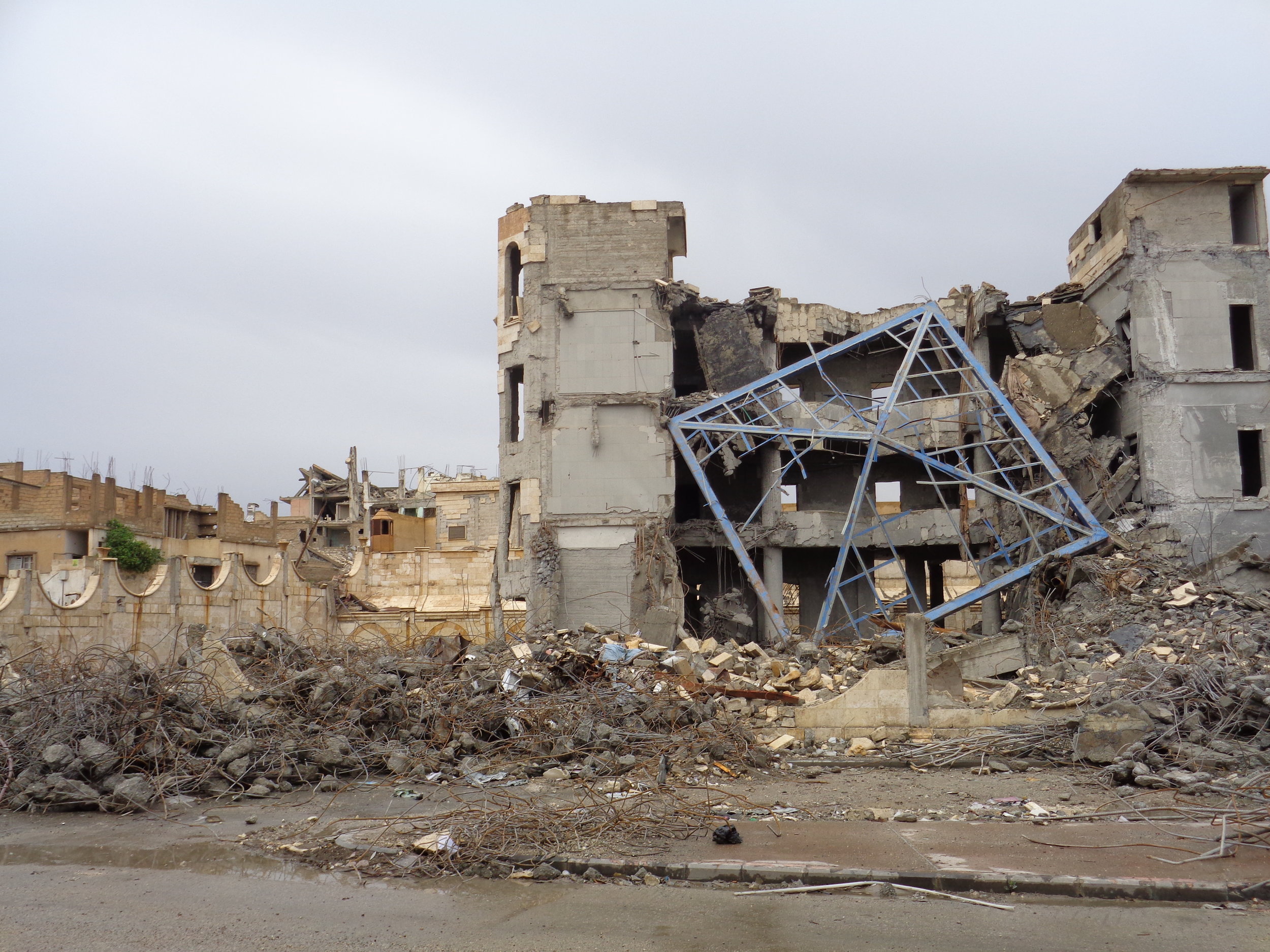As Dust Settles in Syria, Humanitarian Crises Remain

This blog piece, written by RI Vice President for Programs and Policy Hardin Lang, originally appeared on Axios.com
Last week’s strikes against Syria won’t change the arc of the conflict, nor will they alleviate the suffering of the civilian population: chemical weapons are responsible for but a tiny fraction of that suffering, and their absence will not stop the Assad regime from pressing its military advantage.
“Missile strikes alone will not be enough to protect the progress that’s been made in northeast Syria…”
What’s next: Diplomats and donors must take steps to address looming humanitarian crises in two conflict-ravaged regions in northern Syria.
The worst trouble spots:
Idlib: Millions of Syrians have been displaced to this northwestern governorate, including many of the 130,000 civilians forced from the Damascus suburb of Eastern Ghouta over the past month. Having secured Ghouta, the regime may now move against Idlib. The governorate is largely under the control of extremist factions, and humanitarian access is limited. Worst of all, civilians will have nowhere to run, since Turkey has closed its border in the area. If Ankara does not reverse this policy, millions of Syrians could find themselves trapped in a kill box.

The northeast: Much of northeast Syria has been liberated from the Islamic State, but the fighting has taken a horrible toll: tens of thousands of people are living in camps; the city of Raqqa has been largely destroyed and is teeming with IEDs; and local authorities, with just a handful of aid workers, are struggling to cope. Most Syrians thought U.S. troops would remain for several years, but President Trump’s recent comments have left them worried that a hasty American withdrawal will plunge the northeast into chaos: Relief groups would be forced to withdraw as the Syrian Defense Force, Turkey and the Assad regime battle for control. Hundreds of thousands of people would be displaced in the process.
The bottom line: Missile strikes alone will not be enough to protect the progress that’s been made in northeast Syria, nor to prevent Idlib from descending further into crisis. To do so, the U.S. must not abruptly disengage. Rather, it must maintain a troop presence in northeast Syria and unfreeze $200 million in U.S. stabilization assistance, channeling more aid to the displaced.